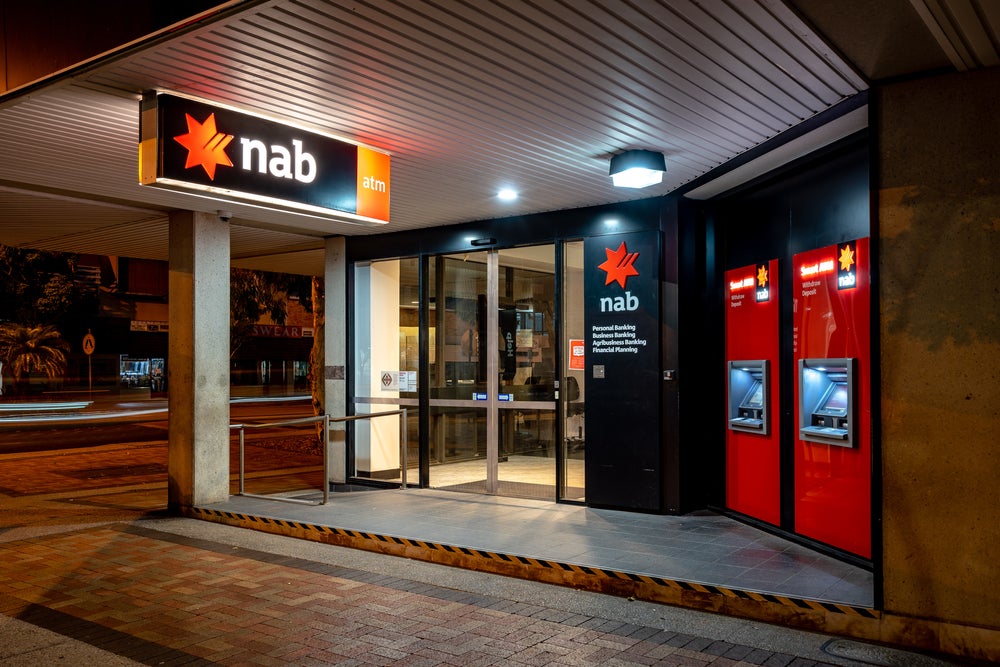Global payment processor TSYS is hoping to help banks
grab an increasing share of debit transactions with the launch of a
hybrid product that combines credit and debit functionality on a
single card. As Charles Davis reports, not only will it benefit
banks, it will also provide cross-selling
opportunities.
 To date, all the buzz
To date, all the buzz
about decoupled debit has been just that – buzz. That may be set to
change, as global payment processor TSYS has developed a way to
help issuers of credit products grab debit transactions on the same
account.
The TSYS
Hybrid card is positioned as a credit card to which consumers
may link accounts at any bank, up to five in all, to one card
platform. Sarah Hartman, senior director of payments solutions for
TSYS, said the idea was brought about by a combination of “client
interest and TSYS innovation”.
“We are always thinking about what
things we can do on the processing side to add value, the technical
folks began working on it and the reaction from the client base has
been very exciting,” Hartman said.
Increased flexibility and
functionality
How well do you really know your competitors?
Access the most comprehensive Company Profiles on the market, powered by GlobalData. Save hours of research. Gain competitive edge.

Thank you!
Your download email will arrive shortly
Not ready to buy yet? Download a free sample
We are confident about the unique quality of our Company Profiles. However, we want you to make the most beneficial decision for your business, so we offer a free sample that you can download by submitting the below form
By GlobalDataFrom the outside, a hybrid card
looks and operates like a standard credit card, she said. Consumers
can enrol accounts by setting rules for how each transaction is
handled.
For example, all payments under
$100 or all purchases at a particular merchant category could be
handled as debit, and all other transactions would be routed to the
credit account. Cardholders may even switch payments from one
account to another after the fact.
“A customer could have a primary
checking account for day-to-day expenses, say things under $100,
and have a second account for travel expenses and use that when
they are on the road,” she said. “The possibilities really are kind
of endless.”
All the decision-making happens
with TSYS’ network, so from the merchant perspective all purchases
are handled as credit transactions, and carry credit interchange
rates, Hartman said. She added that TSYS is in discussions with a
number of issuers at this point, both financial institutions and
retailers.
“Retailers are interested in it
from a loyalty sense,” she said. “Many of them have a proprietary
and private-label product, but loyalty debit, in which the consumer
earns points or some loyalty bonus for shopping there, is
intriguing to them, if you could have a way to reward that through
a hybrid functionality. It could start conversations we aren’t
having right now.”
Hartman said that hybrid approaches
are ideally situated for today’s tough economy. Each day, TSYS
would assemble a list of transactions made with the card. If the
debit payments come from an outside bank account, the funds would
be moved over the automated clearing house (ACH) network. If the
deposit account were at the same bank that issued the credit card,
TSYS would send a file to the bank so it could handle the transfers
internally.
Cardholders could also move
transactions between accounts, as long as they do so before the
credit account’s billing cycle ends. For example, a consumer could
specify that all grocery store purchases be handled as debit
payments, but could move a particularly large shopping run to the
credit account.
“It provides the consumer with
greater flexibility than ever before when it comes to managing
payments, even after the payment event,” she said. “We know credit
lines are tightening, people are trying to pay down debt, people
are going to fewer cards, so this is beneficial from that
standpoint because most people would elect to pay now and free
their credit line up for additional spend on that card.”
Cross-selling
opportunities
For TSYS, the Hybrid card also
means plenty of cross-selling opportunities. Issuers that offer the
Hybrid card could also use TSYS’ mobile alerts system, its
analytics platform or its loyalty platform, Hartman said. The TSYS
product means the issuing bank would capture more transactions, a
huge incentive for issuers.
Banks that are primarily debit
issuers may see an opportunity to efficiently diversify into the
credit business. Banks that are strongly oriented to relationship
building and product cross-sell may appreciate the opportunity to
deliver several different products from a single piece of
plastic.
The TSYS strategy represents a
signal change from the decoupled debit offerings to date. Capital
One began the trend by unveiling a system in which an issuer would
provide the card and consumers would enrol accounts at any bank.
The transactions were to be routed from the merchant to the issuer
on one of the card networks and then be transferred to the ACH
system to access a cardholder’s bank account. Capital One tested a
card that ran on MasterCard’s network in 2007, but the programme
was shut down in 2008.
Tempo Payments has also tried to
promote various decoupled models in recent years, including asking
merchants to issue the cards; when large merchants proved reluctant
to participate, Tempo switched to a co-branded approach, and is now
focusing on affinity cards for special interest groups.
Until now, decoupled debit cards
have been conceived as a new and separate card product, running on
the MasterCard signature debit network and rules, that the consumer
needed to be convinced to carry and use. TSYS is offering a
flexible set of tools designed to allow card issuers to offer
consumers access to several different credit and deposit accounts
from a single card with little or no change to the cardholder’s
payment habits. So, rather than needing to create a value
proposition for carrying an entirely new card, the Hybrid card
holds the potential to make decoupled debit an add-on feature to a
credit card.
The ultimate destination for such a product could be mobile
phones, although Hartman specifically declined to discuss plans
beyond the launch. The online control panel for the card can be
accessed through smart phones and the product itself can be linked
to mobile alerts, so it’s not hard to see how quickly an issuer
could decouple debit and link the accounts to the user’s phone.







